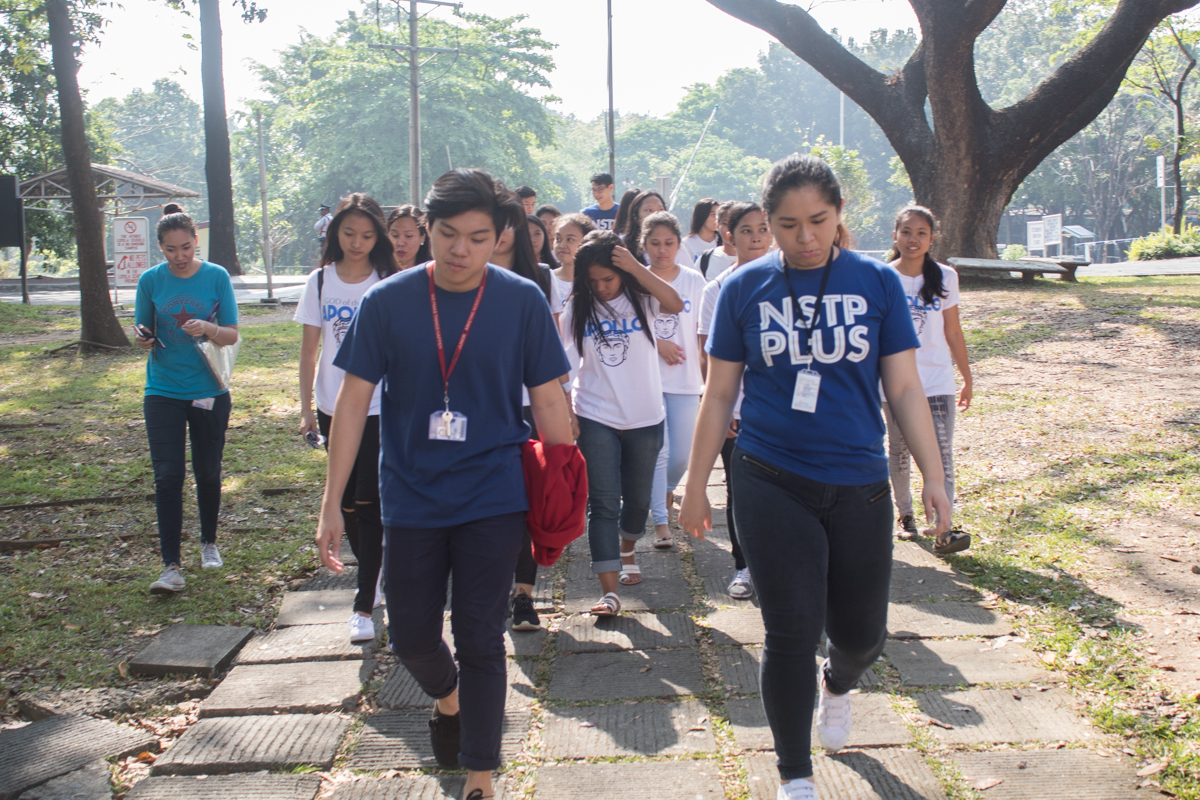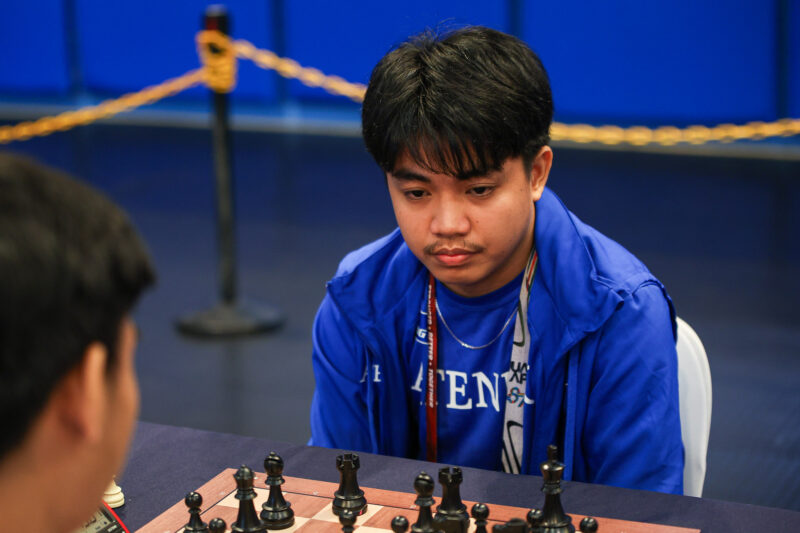SEVERAL ACTIVITIES in the Loyola Schools have been halted and modified in line with the Commission on Higher Education (CHED) Memorandum Order No. 17 issued last February 21.
The Commission issued a moratorium on field trips and similar activities of higher education institutions after a bus accident in Tanay, Rizal left 14 college students and their bus driver dead when they were on their way to undergo medical and survival training under their National Service Training Program (NSTP).
Two days later on February 23, CHED released a clarification on Memorandum Order No. 17 stating that certain activities such as internships (both international and local), international educational trips, and international educational linkages were exempted from the moratorium.
Following the release of the memorandum, an emergency meeting was held on February 22 to clarify the effect of the moratorium on the off-campus activities initially planned for Loyola Schools students. This was attended by the Vice President for the Loyola Schools, Maria Luz Vilches, PhD, the Office for Student Concern and Development (OSCI), and Office of Student Activities (OSA).
Vilches stated the moratorium only covered activities required by the official curriculum. Council of Organizations of the Ateneo (COA) President Winonah Siy also said that the activities of the organizations are not affected and could proceed as normal.
“[The] CHED Memorandum only said school-sponsored or admin-related na activities would be cancelled. Then that means that org-organized events would not be affected,” Siy said.
Area engagements scrapped
OSCI Director Leland Dela Cruz stated that OSCI was able to make adjustments for activities under the Integrated Ateneo Formation (INAF) by offering set alternative activities in the form of on campus talks instead of the usual area engagements.
Dela Cruz stated that they are currently in the process of designing the alternative activities. NSTP students started undergoing their alternative activities on March 4, while PRAXIS alternative activities are scheduled to start in late March to early April, and Junior Engagement Program (JEEP) alternative activities in April.
He also added that OSCI was able to modify certain INAF activities, as some NSTP activities that involved teaching to public school students were modified by bringing the students to Ateneo, instead of sending the sophomores to the public schools themselves, and on-campus JEEP activities are now being offered.
OSCI is also giving students a choice to help out in the National Assessment Test review as well as providing assistance to Grade 11 students under the Accountancy, Business, and Management track, with permission from the Department of Education and the principals of the schools involved.
Dela Cruz stated that while the new default requirement is for students to attend these alternative activities, in the event that students still wish to undergo these out-of-school activities on a purely voluntary basis, OSCI will continue to provide students with these services, provided they show consent forms from their parents.
“If students still want to do immersion on a purely voluntary basis, we can still say that some students still want to go on immersion, so ayaw naman naming itigil ang immersion, from the understanding that voluntary ito,” he explained.
Dela Cruz said that the experience from the “direct engagement that being outside the university” provides cannot be completely replicated.
“It’s a qualitatively different experience when you’re actually out there in the area, engaged with marginalized communities and social development and institutions, rather than being here in the confines of the university,” he said.
Exceptions to the moratorium
During the meeting on February 22, it was decided that a letter would be sent to CHED to further understand the effects of the moratorium to these offices. After this, Vilches consulted with CHED Chairperson Patricia Licuanan if the moratorium includes all activities despite the safety protocols followed by Ateneo.
“I said, ‘Can I write to say that we will make a list of goals that we can ask for permission for CHED to exempt? Because we are covered by certain safety protocols.’ and [Licuanan] said, ‘yes you can, as long as the safety protocols are also in place,’” Vilches said.
Dela Cruz operated with the use of the term “field study” in the clarification, which was defined as a “course or activity that intends to provide students with practical learning experiences in which they can observe, reflect on, or experience different components of the profession for which they are preparing,” as stated in CHED Memorandum order no. 30 on the Undergraduate Teacher Education Curriculum.
He also sent a letter to Vilches enumerating the activities under the INAF program that were considered field studies and hence not covered by the moratorium. These exceptions include, but are not limited to, immersions that are linked to Introduction to Econometrics (EC117), JEEP programs linked to Qualitative Methods in the Social Sciences (SA104), and the NSTP activities for Health Sciences, Psychology, and Communication sophomores.
Dela Cruz mentioned that it was suggested that OSCI consider all INAF programs as field studies, but stated it was “too much of a stretch,” and instead decided to handpick certain activities that they deemed appropriate for the definition of a field study.
“There’s no CHED memo on field studies, there’s a CHED memo on field studies for particular disciplines. So what we did was we looked at the disciplinal definitions of [a] field study and chose the one that seemed most appropriate for our situation,” he added.
Transportation safety
With organization activities and field study trips pushing through, greater attention is given to transportation safety and security.
“I hope that everyone would actually just keep safe and would be weary about the transpo that they’ll be using, so better be safe and invest on proper transpo so that if anything should happen, we’d also know, what company that is or how to resolve that,” Siy said.
Vilches said that there is little to worry about the jeepneys that bring students outside campus because trust has already been established between them and Ateneo.
“These are jeepneys that they have known for years and I mean this is not the first time they are doing this here. So there is trust and there is confidence in what they’re doing. Otherwise, that would not have continued, all of these activities would not have continued if we were not taking all of this into consideration,” she said.







